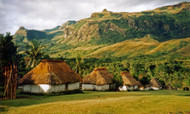Famous Symbols Culture in Fiji You Must Know
Posted by Maris on 9th Jul 2024
Fiji's culture is rich and diverse, characterized by its indigenous Fijian heritage and the influences of Indian, European, Chinese, and other Pacific Island cultures. This blend is reflected in various cultural symbols that play a significant role in Fijian society. Here are some of the key symbols of Fijian culture and their significance:
1. Tabua (Whale's Tooth)
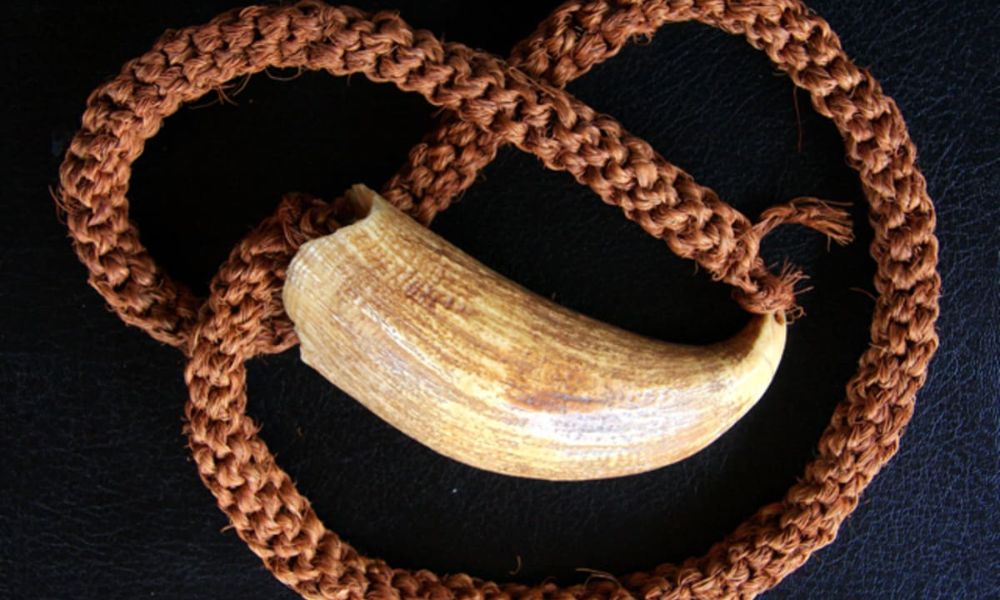
- Significance: The tabua is one of Fijian culture's most important and sacred items. Traditionally made from a polished sperm whale tooth, it symbolizes wealth, status, and respect. Tabuas are highly valued and used in significant social rituals, such as weddings, funerals, and chief installations.
- Uses: They are often presented as gifts to affirm bonds, forge new alliances, or seek forgiveness and reconciliation.
2. Masi (Tapa Cloth)
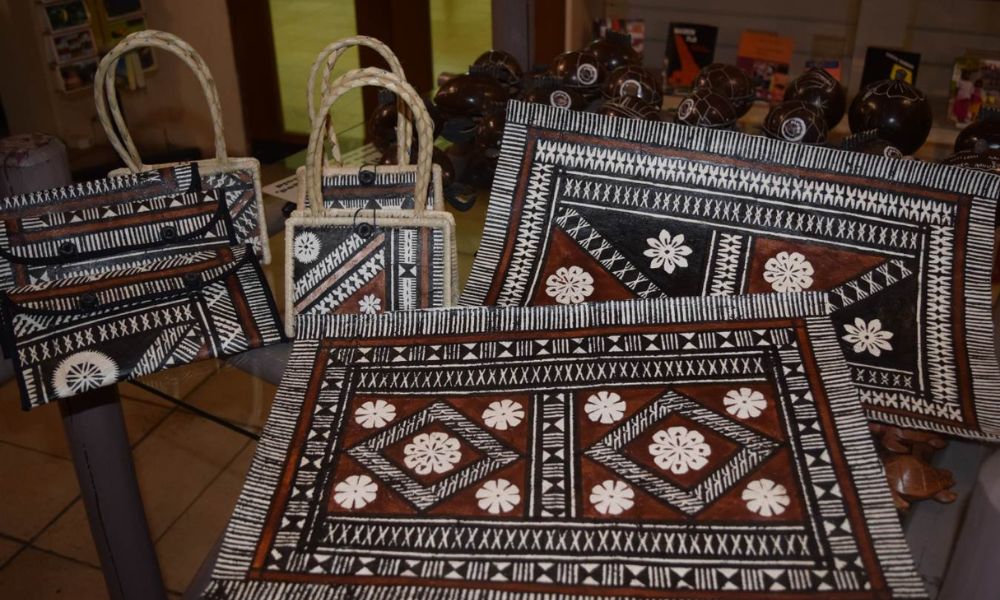
- Significance: Masi, or tapa cloth, is made from the bark of the paper mulberry tree. It is significant in various ceremonies and symbolizes tradition and craftsmanship in Fiji.
- Uses: Masi is used for traditional clothing, wedding dresses, and important ceremonial occasions. It is also a popular gift for significant life events and is often decorated with motifs that have cultural and tribal meanings.
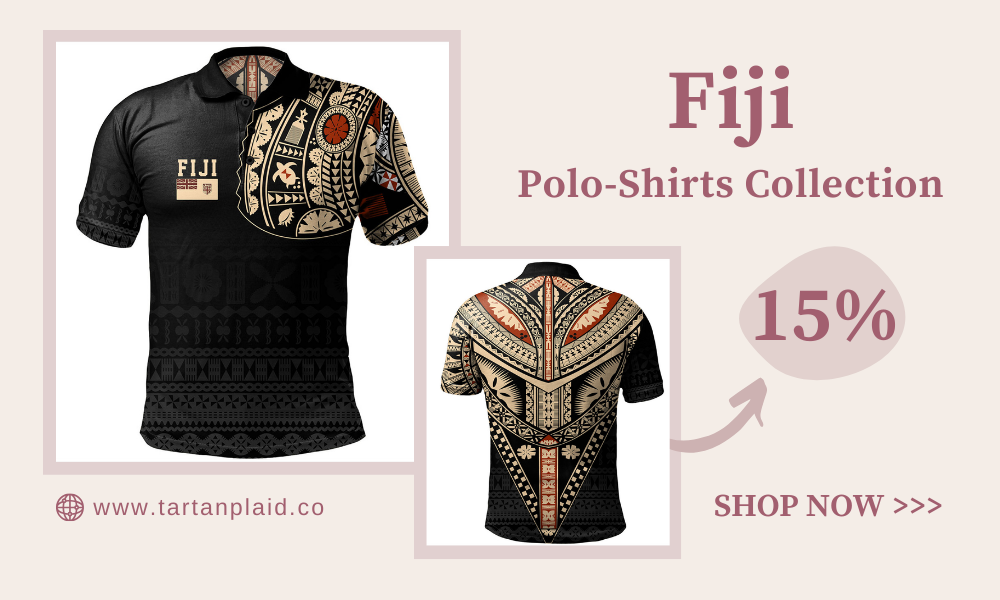
3. Drua (Double-Hulled Canoe)
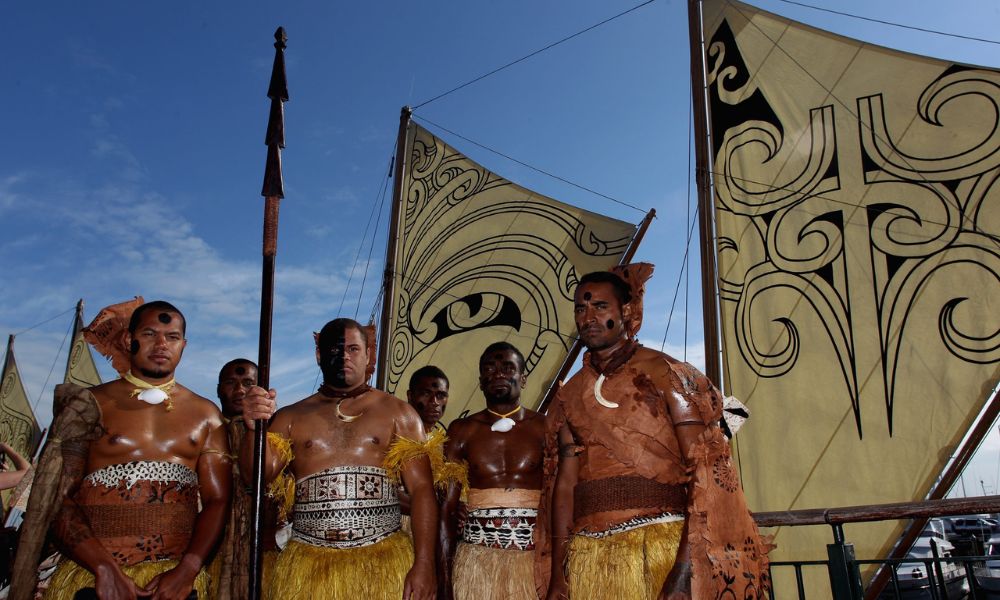
- Significance: The drua, an impressive double-hulled canoe, represents the Fijian people's maritime skills and oceanic heritage. It was historically used for long voyages across the Pacific and symbolized strength and ingenuity.
- Uses: While not commonly used today for transportation, models, and images of the drug are often displayed to celebrate Fijian craftsmanship and navigational prowess.
4. Fijian War Club
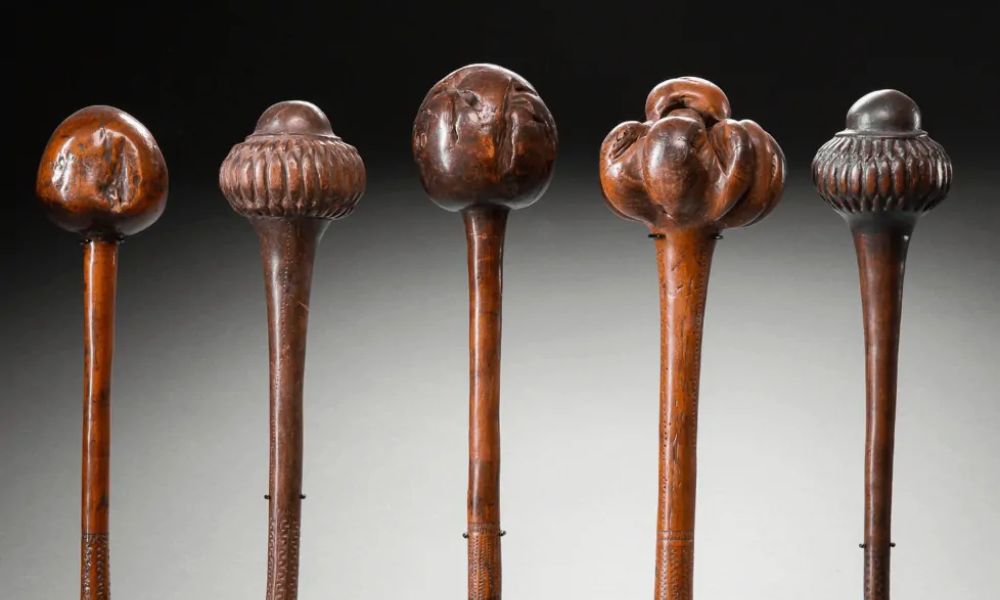
- Significance: Various types of war clubs, each with specific designs and uses, are significant in Fijian culture. These clubs symbolize the warrior spirit and the historical importance of tribal warfare and protection.
- Uses: Today, these clubs are mainly ceremonial and are used in traditional dances and presentations. They are also popular as decorative items and souvenirs.
5. Kava Bowl (Tanoa)
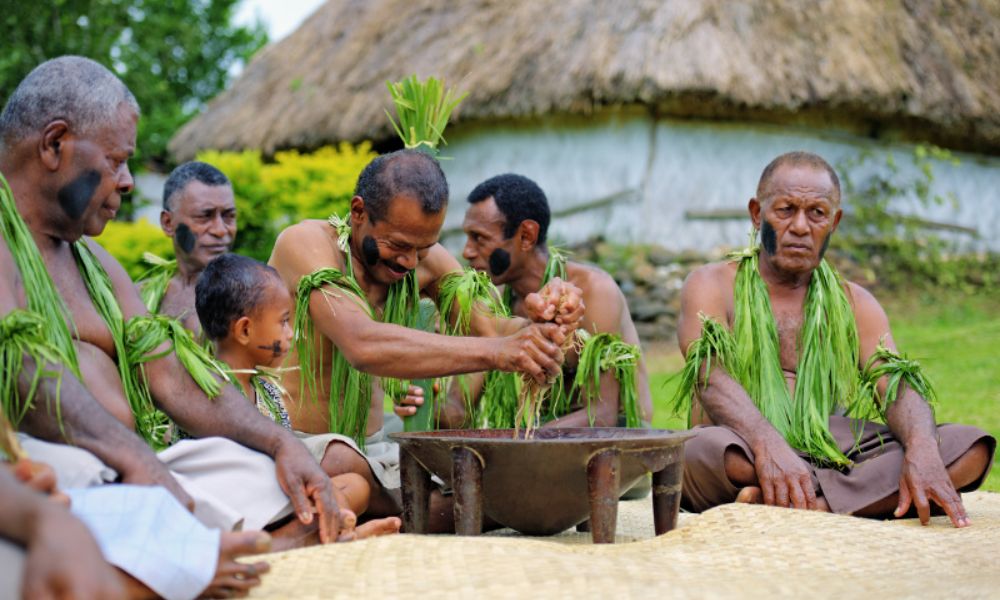
- Significance: The kava bowl, or tanoa, is central to the ritual of kava drinking, which is a cornerstone of Fijian social and ceremonial life. The tanoa symbolizes community and tradition, as kava ceremonies are integral to welcoming guests and discussing important matters.
- Uses: The tanoa is used in the preparation and serving of kava, made from the ground root of the kava plant, during traditional ceremonies.
6. Fijian Bure
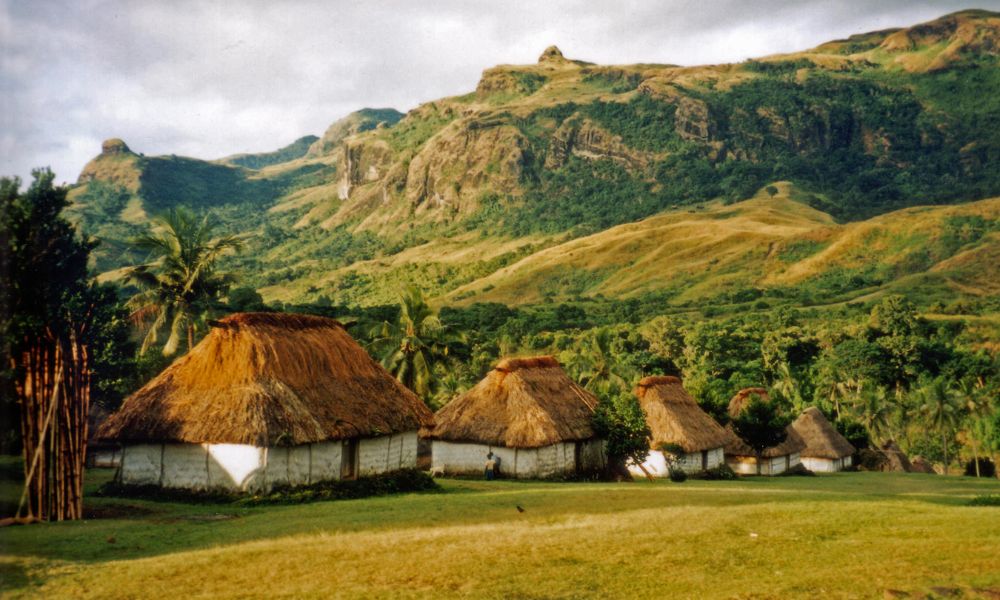
- Significance: The traditional Fijian bure, a hut with a thatched roof, symbolizes Fijian architecture adapted to the tropical climate and available resources.
- Uses: Bures are still used as homes in many rural areas and have become synonymous with Fijian hospitality, often seen in resorts offering an authentic local experience.
7. Lali Drum
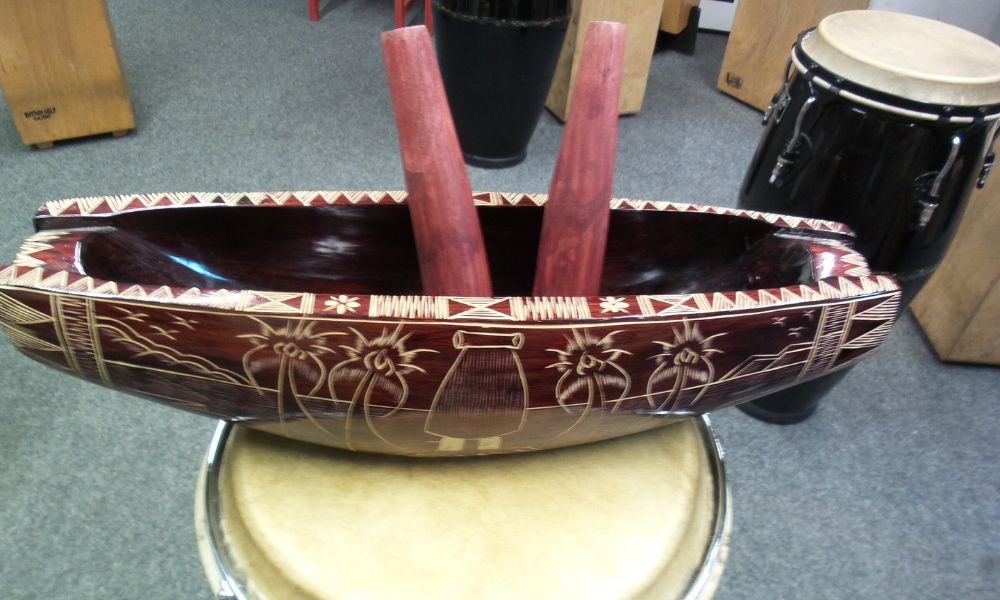
- Significance: The lali drum is a traditional wooden drum used in Fiji for communication and during various ceremonies. It symbolizes the community's gathering and the importance of communication within traditional Fijian society.
- Uses: Lali drums are used to call meetings, start ceremonies, or during celebrations and are an integral part of Fijian musical traditions.
These symbols are not just remnants of a historical past but continue to be active elements of daily life in Fiji. They showcase the nation's rich cultural heritage and enduring practices and provide insight into the values, history, and identity of the Fijian people.

